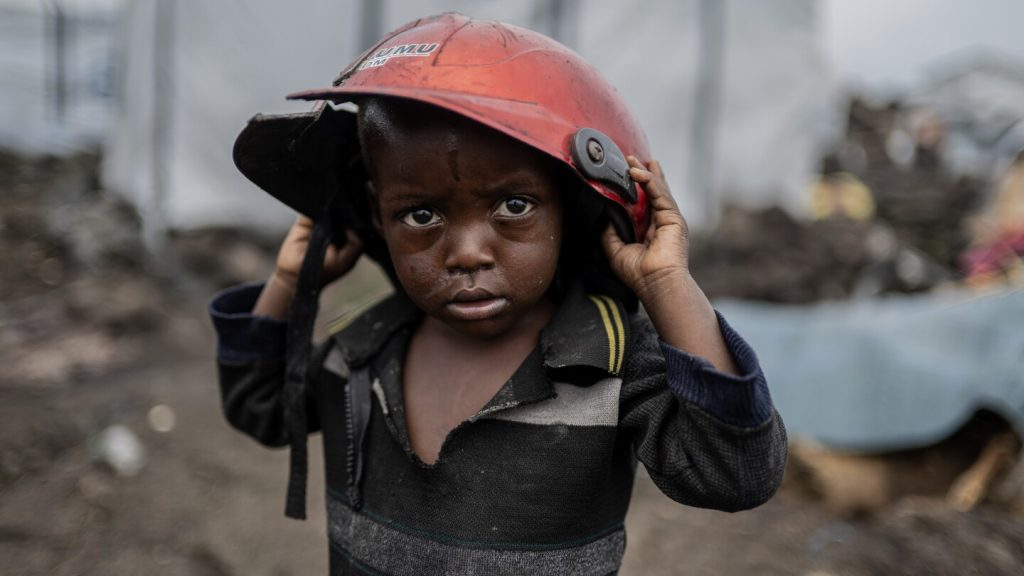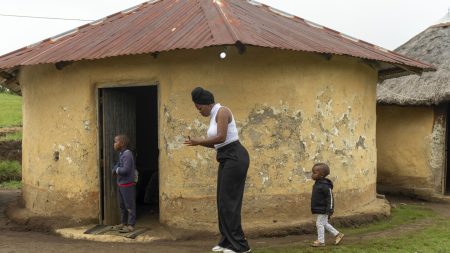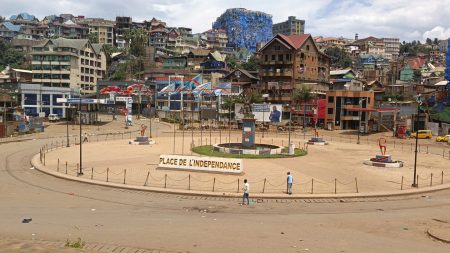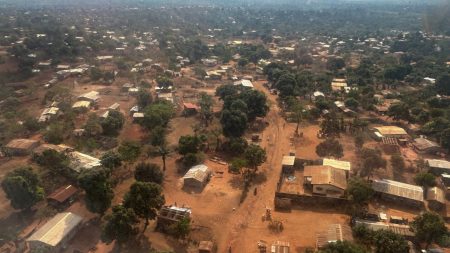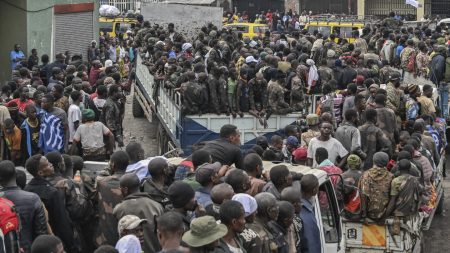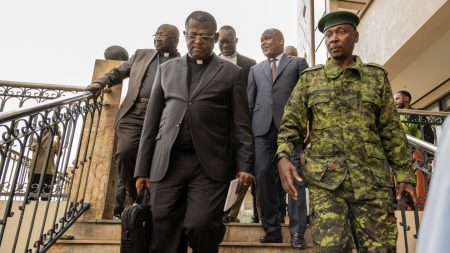###Rwanda-Backed Rebels Displace Thousands in Eastern Congo
The situation in eastern Congo has taken a dire turn as Rwanda-backed M23 rebels, who recently seized control of Goma, the region’s largest city, have forcibly closed displacement camps. This has led to the displacement of over 110,000 people in recent days, according to the United Nations and local sources. The M23 rebels, one of more than 100 armed groups vying for control of Congo’s mineral-rich east, captured Goma in late January, marking a significant escalation in the long-standing conflict with government forces. The rebels’ advance has resulted in the deaths of at least 2,000 people in and around the city, according to Congolese authorities.
### Forcible Closure of Settlement Camps and the Plight of Displaced People
The M23 rebels issued a 72-hour ultimatum to displaced people, ordering them to leave the settlement camps and return to their villages. While the rebels later clarified that the returns should be voluntary, the U.N.’s humanitarian aid coordination agency, OCHA, reported that over 110,000 displaced individuals have left the camps for distant villages. Aid groups have warned that these villages are farther away from the reach of humanitarian assistance, exacerbating the already dire situation. Many displaced families in Goma were seen dismantling their makeshift shelters and packing up their belongings, preparing to leave with little to no support.
### Humanitarian Crisis Deepens as Displacement Continues
The humanitarian crisis in the region has worsened significantly, with at least 500,000 people displaced following the M23’s advance, according to the Forum of International Non-Governmental Organisations. Goma was hosting close to a million displaced people before the escalation of fighting on February 26. Emergency coordinators like Oonagh Curry of Doctors Without Borders (MSF) have expressed deep concern over the situation, emphasizing that the sudden movement of such a large population could worsen the already severe humanitarian crisis. The fluidity of the situation has made it increasingly challenging for aid organizations to provide essential services to those in need.
### Personal Stories of Struggle and Desperation
Among those forced to leave the Bulengo displacement camp in Goma was Sibomana Safari, who expressed his desperation at being asked to leave with nothing to provide for his children. “I am surprised because we are asked to leave, yet I have nothing to give to the children,” he said. “We all (are) leaving without any help, and I don’t know if we’re going to make it.” Similar sentiments were shared by Kwimana Sifa, another displaced individual whose house was destroyed by a bomb. “It is better to leave us here. Although we lack food, we have shelter here,” he pleaded. “What we want is just peace and nothing else.”
### Ongoing Conflict and Uncertainty
Despite the M23 declaring a unilateral ceasefire last week, local reports indicate that fighting between the rebels and government forces continues, particularly as the M23 moves towards Bukavu, the provincial capital of South Kivu. The rebels have threatened to take action over alleged killings in Bukavu, which is about 50 kilometers (31 miles) away from their current reach. “The situation in Bukavu is deteriorating dangerously. Our compatriots are continually being killed,” said M23 spokesperson Lawrence Kanyuka. “If these crimes persist, we will take our responsibilities to eradicate the threat at its source and protect our people,” he added.
### A Call for Peace and Assistance
The situation in eastern Congo remains highly volatile, with the displacement of hundreds of thousands of people and the continued threat of violence hanging over the region. The international community has been urged to take immediate action to address the humanitarian crisis and to support those affected by the conflict. For the displaced populations, the primary desire is peace and stability, as they strive to rebuild their lives in the face of immense uncertainty and hardship. The world must not turn a blind eye to their suffering.





